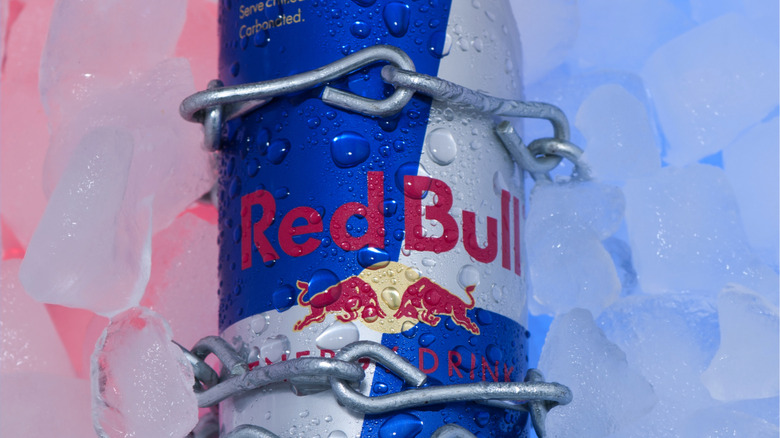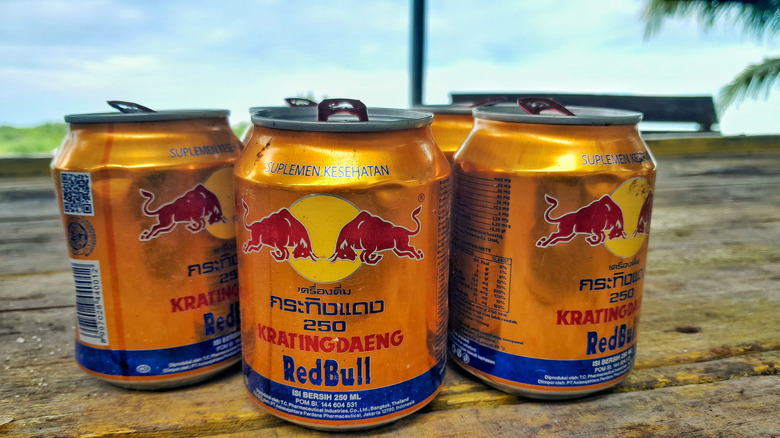It's True: Red Bull Was Once Banned In France
In 2008, France finally allowed Red Bull's original formula to be sold in stores. Until then, Red Bull could sell its drink sans taurine, an amino acid made in our bodies and found most often in meat, dairy, and fish that is said to kickstart the metabolism, but is it really Red Bull if it doesn't give you wings?
France didn't willingly allow Red Bull into its markets after the 12-year ban; it was forced to allow the energy drink on its shelves because "European Union regulations state that a product made or sold in other E.U. countries cannot be banned unless a health risk is proven." Red Bull, being an Austrian company, falls firmly into the category of products made in the E.U.
So, while France had expressed concerns over taurine and the high caffeine content without concrete evidence of adverse health effects, these worries weren't enough to uphold the ban. Norway and Denmark had also banned the energy drink and soon followed suit, allowing it onto shelves. However, Red Bull isn't the only drink that's been banned outside the U.S.
History of Red Bull and energy drinks in France
Red Bull may be an Austrian company, but its origins are in Thailand, where an Austrian man named Dietrich Mateschitz visited the country in 1982 and tried the noncarbonated energy drink Krating Daeng, Thai for "Red Bull." Working with the founder of Krating Daeng — Chaleo Yoovidhya — Mateschitz developed a version of the drink with its distinct flavor for a more Western palate. Yoovidhya and Mateschitz founded the company, each investing $500,000 and getting 49% ownership with the remaining 2% going to Yoovidhya's son, Chalerm. The flavoring is still made in Thailand, where the drink is heavily regulated due to its caffeine content.
The new formula was introduced to Austria in 1987 and was a quick hit. It soon spread through Europe in the early '90s but hit a snag when France ruled that the drink was too dangerous. In 1997, Red Bull was introduced to the U.S. and became an instant hit.
Energy drinks were unpopular in France until recently. When the ban was lifted, energy drinks had a low market share, with analysts reasoning that energy drinks didn't mesh with France's laid-back, 35-hour workweek culture. That is changing, however, as sports and energy drinks are on the rise in the country. Finally, the Winged Victory in the Louvre isn't the only one in France with wings. After all this, we understand if you want to give up Red Bull and replace it with a healthier energy drink alternative!

